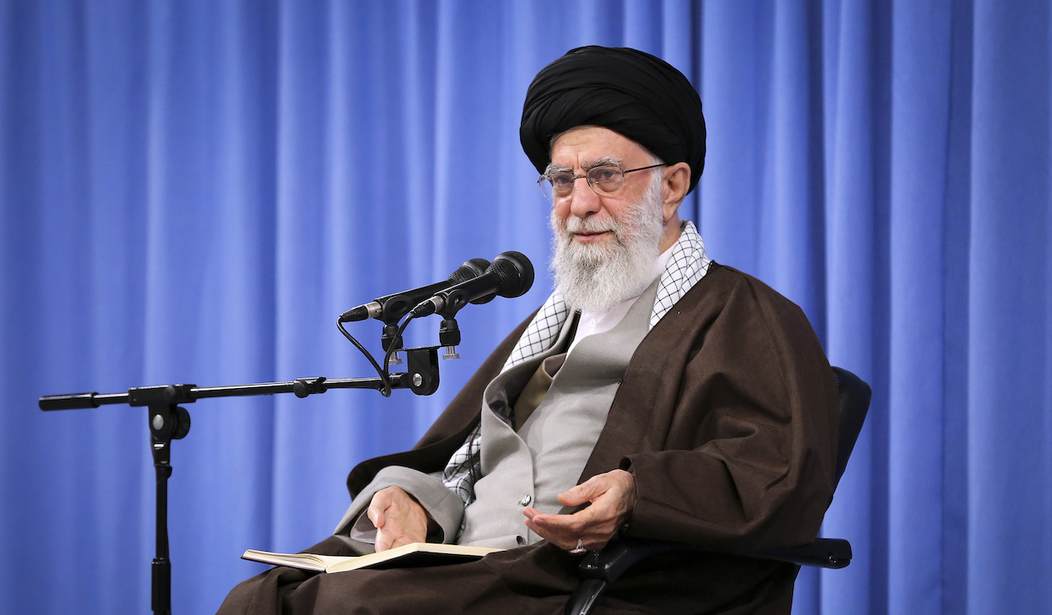The streets are quiet in Iran. There are no mass demonstrations, no outpouring of joy (or sorrow) at the death of President Ebrahim Raisi. For certain, there are large numbers of people quietly ecstatic about Raisi's death. But the dreaded Basij — the so-called "morality police" — makes demonstrating happiness at Raisi's death a crime.
Meanwhile, the oppressive regime grinds on. Acting president Mohammad Mokhber has called for a presidential election in late June as the Iranian constitution dictates. The candidates will be chosen the usual way. The 12-member Guardian Council will choose candidates "eligible" to run, meaning they have demonstrated the required obeisance to Supreme Leader Ali Khamenei.
Mokhber may enter the race, but he's been far more effective behind the scenes working for his patron, Mojtaba Khamenei, the powerful and secretive son of Supreme Leader Ali Khamenei.
Mojtaba has spent decades cultivating contacts, especially in Iran's intelligence and military circles. He is close to several powerful members of the Revolutionary Guards and is definitely the "power behind the throne" in Iran.
“Mojtaba and the network around him have been running the show over the past two decades,” said Hamidreza Azizi, visiting fellow and Iran expert with the German Institute for International and Security Affairs. “Now, certainly for Khamenei himself, the main challenge is to find someone with the exact characteristics that Raisi had.”
Raisi's "characteristic" was extreme pliability. He was the younger Khamenei's "yes man" and was a conduit to the centers of power in business and industry.
Mojtaba will not be a candidate for president, nor will he be considered as a successor to his father as Supreme Leader. He can operate much more effectively in the shadows of Iranian politics where there is profit and power to be had.
Besides, Mojtaba lacks specific religious requirements for a candidate to ascend to the position of Supreme Leader. He will continue to wield power from the shadows.
Indeed, the coming election is as much about a successor for Khamenei as it is a successor for Raisi. Raisi was seen as a probable and logical successor to the Supreme Leader, so his death has set the upper echelons of power in Iran scrambling.
The coming elections are seen in opposition circles as an opportunity. Reuel Marc Gerecht, writing in The Free Press, describes Iran as a "volcano" — "a large magma pool of discontent always pressing against the security services, hunting for a weak point, a provocation, that will crack the fear that keeps back an eruption."
The 2022 uprising was sparked by the death of Mahsa Amini, a young Kurdish woman who wasn't wearing her hijab properly. She was hauled off by the Basij and thrown in jail. Two days later, she was fighting for her life in a hospital following a beating by Basij thugs. She died a few days later.
Her death lit the fuse for a months-long uprising that ended in the deaths of more than 500 protesters and the imprisonment of 20,000.
The question is: what will the U.S. and the West do this time when the Iranian people take to the streets and cry out for freedom?
Our strategic reality is this: Iran could have Jack the Ripper as president and Joe Biden and his national security adviser, Jake Sullivan, would still choose to continue Barack Obama’s policy of engagement. Who the Iranian theocrats are—who and how they have tortured and killed, who they support (the Lebanese Hezbollah, Hamas, Houthis, the Assad regime in Syria), and who they have aligned with (Russia, China, North Korea)—never intrude sufficiently to alter Washington’s current course. When it comes to Iran, with most Democrats, we are on an endless left-wing “realist” loop where the overriding objective is to avoid war.
Such timidity has left others in the region more vulnerable and has only encouraged Tehran to push the envelope. Iran’s surging “axis of resistance” is a by-product of American appeasement. So is Iran’s increasing stockpile of enriched uranium and its insouciant, up-yours attitude toward the International Atomic Energy Agency’s efforts to monitor Tehran’s machinations. It has led to the duel between Israel and the Islamic Republic and it could easily lead to a big regional war, with the U.S. obliged to intervene—exactly what Team Biden has been so determined to avoid.
Trying to avoid war is a good thing. Trying to avoid war at all costs is appeasement. And when our most cherished values are under assault by a truly evil regime, Joe Biden has been found lacking in courage and commitment.









